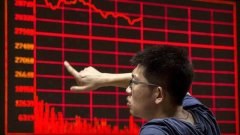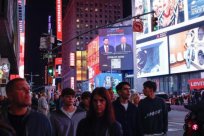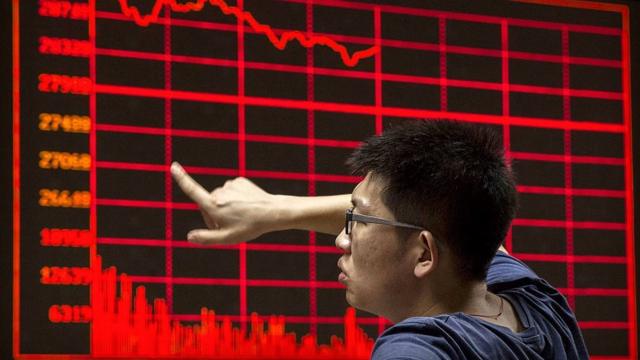
image source, getty image
From September 24th, China's economic stimulus measures can be described in two words -dense and unexpected.
The dense is that from the central bank, the Securities Regulatory Commission, the Ministry of Housing and Urban -Rural Development, to the Development and Reform Commission and the Ministry of Finance, a press conference will be held in succession, and a series of stimulus policies will continue to dispel the public's doubts.Records, sweeping the haze for three years.
An unexpected example is that the central bank has launched a new stimulus tool that has never appeared in China, allowing banks to loans to enterprises to repurchase its own stocks. This is very different from China's past administration style.In the investment infrastructure or subsidy manufacturing industry, and try to avoid the economy of "getting rid of reality".
What causes this change?During this ups and downs, the stock market experience rose continuously, and we ushered in several sharp declines. Can the stock market really save the economy?
Leve the new tools in the stock market
This round of bull market opened on September 24.Pan Gongsheng, president of the People's Bank of China, announced that two structural monetary policy tools have been established to support the development of the capital market.
The first tool is the convenience of the exchange of securities, funds, and insurance companies. It allows qualified institutions to use assets such as bonds, 300 CSI ingredients stocks, and high liquidity from the central bank to government bonds and central bank bills.Assets, for investing in stocks, the first phase of operation is 500 billion yuan (the same below).
Another tool is a special re -loan, which guide commercial banks to provide loans to listed companies and major shareholders for repurchase and holding holdings of listed companies. The first period is 300 billion yuan.
Pan Gongsheng also added, "As long as this is done well, you can come again 500 billion yuan, or even get the third 500 billion yuan."Even the third 300 billion yuan. "
Ultra -conventional policies, coupled with the ultra -conventional state"" ".When asked what he would buy, he replied, "Everything, everything, everything, thing,".
"In my opinion, this move marked a big step, and it is also a potential turning point in the policy stand."It is not difficult to find that it is not difficult to find that this does not suddenly happen overnight, nor is it a sudden change in thought.
Song Lin further explained that under the new crown epidemic, people were arguing between avoiding economic bubbles, inflation out of control and supporting the impact of the economic outbreak.As global inflation began to fall and China's economic growth was mostly lower than expected, the momentum of this debate significantly shifted to the direction to support economic growth.
Xu Tianchen, a senior economic analyst of Economist Think Tank (EIU), expressed that it is nothing new in China.However, their negative impact on social stability is increasing, and maintaining social stability is the bottom line of the highest leader.
"I also think that compared with the past few years, decision makers (becomes) are more willing to contact the market and society and listen to their feedback. In this way, they can get new opinions and help them make different differencesDecision "" Xu Tianchen added.
Before the stock market rose, the Chinese government's stimulus goal has always been the property market, but until May of this year, it was introduced to be called "three arrows". The economic data still did not improve.
Song Lin reminded that one of the main reasons behind supporting the stock market is now the effect of wealth negative effects on consumption and confidence.
The logic behindIn the past, when China's stock market was sluggish, the family's balance sheet was relatively unknown because most of the real estate prices continued to rise.This time, most of the assets, including stocks and real estate, fell at the same time in 2022-23, so residents' confidence was much greater.
Song Lin said that stabilizing real estate prices is obviously a top priority, but relatively speaking, it is easier to boost the stock market.
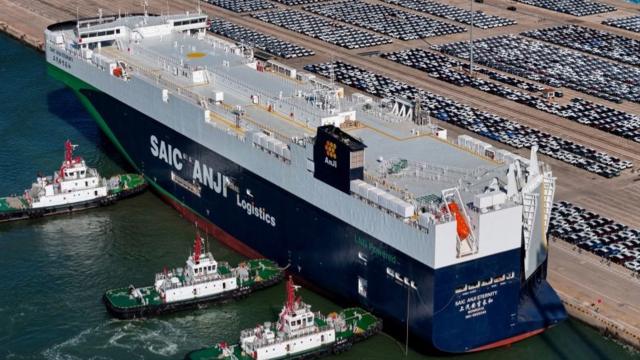
image source, getty image
Can you save the economy?
Song Lin pointed out that the current Chinese economy has fallen into a negative feedback cycle.
There is a word from time to time in the diagnosis of many scholars in the diagnosis of the Chinese economy- "negative feedback cycle".
In short, due to the lack of residents' confidence, the demand is reduced, and the company has to "reduce the cost reduction" by stress.Reduce consumption, and the total social demand has further reduced.
The process ofThis process has been repeated, so that enterprises and residents have the pain of "economy can't".
Song Lin believes that the current policy steering solving confidence and stable asset prices is a key step for the Chinese economy to take a negative feedback cycle.
Xu Tianchen also believes that this is a very active first step. Just stimulating the stock market can create a wealth effect and bring indirect benefits. At the same time, the government also promises that if the situation fails to improveIt is also very important.
Wealth effect refers to the rise in asset prices such as stocks, so that owners feel their wealth growth, so they are more willing to consume.In this round of stock markets, some high -end hotels and liquor consumption have benefited a lot.
Song Qianqian, the founding partner of Jiahua Capital, wrote that the wealth effect of the stock market cannot solve the problem of insufficient effective demand.
He further stated that there is no country in the world, and no economics theory can prove that only relying on the wealth effect brought by the stock market can effectively solve the problem of lack of contraction and effective demand.In essence, the core of the problem of shrinking is employment, the ability of national income growth, the marginal improvement ability of disposable income, the ability to transform and upgrade the economic structure, and measure the success of the transformation from production -oriented society to consumer society.It is also the true expression of the living standards and happiness index of the people.These are the major tests of structural reforms and long -term economic growth models and capabilities.
Song Lin also said that in addition to the stock market, it is necessary to stabilize real estate prices, restore revenue expectations, and restore investor confidence through market and legal reform."Now it is undoubtedly a good step in the correct direction, but there are still a lot of work to do in the future."
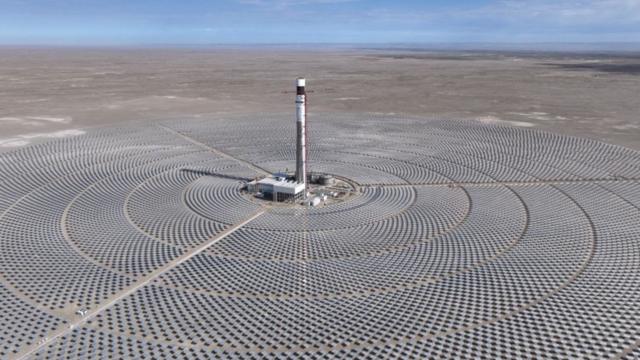
image source, getty image
Worries of sequelae
The new governors have begun after 2012. In the next ten years, China's economic policy is very conservative. Almost every favorable policy must emphasize "deleveraging" and prevent "large water irrigation" and "removing reality" and "removing reality""Xiangxuan".
This policy orientation is related to the "4 trillion plans" in China in 2008.
In the second half of 2008, Yu Bo of the financial tsunami across the Pacific Ocean rushed to the coast of China, and China's foreign trade suddenly jumped off the cliff in November-export growth rate dropped from 19.2%to -2.2%, and imports dropped from 15.7%to -17.9%.Then the Chinese Prime Minister Wen Jiabao said, "This financial crisis is rare in history."
A few days later, China pushed sharplyA 4 trillion -dollar economic stimulus plan was released, and the global economy at that time was revitalized.A large amount of investment injects the economy, infrastructure frenzy has become the main force of China's economy and even the global economy -governments at all levels suddenly relax the conditions for approval of investment projects, and densely agree with the subway planning of 28 cities, and invest in more than 1 trillion yuan. In the end, this is the end.45%of the "4 trillion" invested in large -scale infrastructure fields such as highways, railways, airports, and urban and rural grids. The most famous representative cases were the mileage of China ’s high -speed rail traffic from the time to 45,000 kilometers from the end of 2023.Stalling the world's first.
But this stimulus plan also has a profound adverse effects -pushing up the risk of debt and blowing up the real estate bubble.Wu Jinglian, a well -known economist in China, said that "not only did it not reduce leverage, but on the contrary, it was further leverage." Once there was wind blowing, "the local capital chain was broken to other parts of the financial market, causing a systemic crisis."
In order to avoid this crisis, China has to bear the pain caused by "de -capacity, destocking, deleveraging".
In terms of numbers, this time, the market is currently discussing the rumors of investing 6 trillion yuan within 3 years.But Song Lin pointed out that although the number is larger than that year, the impact is much smaller, he gives two reasons:
On the one hand, compared with the stimulus in 2008, the stimulus measures involve a small proportion of investment in China's GDP. At present, China's economic volume has nearly 4 times that of 2008.
On the other hand, a large part of the 6 trillion yuan is used to solve the problem of local government debt. Compared with investment infrastructure and real estate, the number of multiplication effects used to solve the expenditure of unpaid debt must also beIt is much low, because infrastructure and real estate investment will stimulate many related activities of supply chain.
"Save the economy, prefer to be overly stimulated, and do not have enough strength." Xu Tianchen believes that the side effects of economic stimulus policies from 2009 to 2010 are undeniable, but it has indeed restored the economy that was originally in trouble.The fundamentals of China's current economy are much weaker than in 2009, so it is too early to worry about the consequences of stimulating policies.


